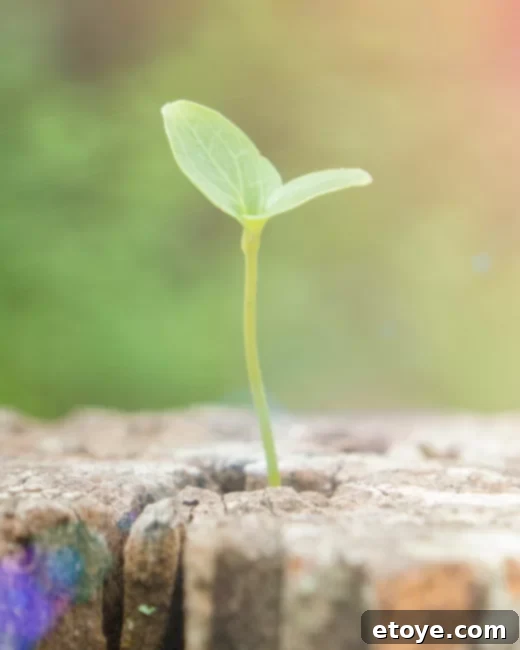Unlock Your Potential: A Holistic Guide to Balanced Self-Improvement
In our modern world, the desire to “level up” and achieve personal growth is more prevalent than ever. We constantly seek ways to improve ourselves, whether it’s our careers, relationships, physical health, or mental well-being. However, this pursuit of self-improvement, while noble, can sometimes lead us down an unhealthy path. The pressure to be perfect, the fear of not being “enough,” and the trap of constant comparison can transform a journey of growth into a source of stress and dissatisfaction. True personal development isn’t about beating ourselves up or striving for an elusive ideal of perfection; it’s about cultivating a deeper understanding of ourselves, embracing our unique journey, and fostering a balanced approach that nurtures both progress and self-acceptance.
This comprehensive guide explores key principles and actionable strategies to help you navigate your self-improvement journey with grace and intention. We’ll dive into powerful practices that promote genuine growth without sacrificing your inner peace, ensuring your path to a better you is sustainable, enriching, and deeply fulfilling. By integrating practical tips with a compassionate mindset, you can achieve remarkable personal development while remaining grounded in your inherent worth.
Embrace the Power of Self-Reflection

The foundation of any meaningful personal development journey begins with self-reflection. It’s the essential first step to understanding who you are, what truly matters to you, and where you genuinely desire to grow. Without this introspective practice, our efforts toward improvement can feel directionless or even misguided, based on external expectations rather than authentic inner desires. Engaging in self-reflection allows you to uncover your core values, identify your strengths, acknowledge your weaknesses, and clarify your aspirations, providing a robust roadmap for your future.
Practical Methods for Deeper Insight
There are numerous powerful ways to engage in self-reflection, each offering unique benefits:
- Journaling: This timeless practice is incredibly effective. Simply putting pen to paper (or fingers to keyboard) can help untangle complex thoughts and emotions. You don’t need to be a skilled writer; the goal is to express yourself freely.
- Writing Prompts: If you find a blank page intimidating, prompts can guide your reflection. Questions like “What am I most grateful for today?” or “What challenge am I currently facing, and what lessons can I learn from it?” can open new avenues of thought.
- Meditation: Beyond relaxation, meditation cultivates a quiet space for observation. By observing your thoughts and feelings without judgment, you gain perspective and clarity. Even a few minutes of focused breathing can be profoundly insightful.
- Nature Walks and Solitude: Stepping away from daily distractions and spending time alone, especially in nature, can foster a deeper connection with your inner self. The quiet allows your thoughts to surface naturally.
- Reflective Questioning: Regularly ask yourself probing questions: “What brings me joy?” “What challenges my beliefs?” “How do my actions align with my values?” This ongoing inquiry sharpens self-awareness.
The Transformative Benefits
Consistent self-reflection offers a wealth of benefits that extend far beyond simply knowing yourself better. It acts as a catalyst for growth, positively impacting various aspects of your life:
- Boosted Confidence: Understanding your strengths and acknowledging your progress builds genuine self-assurance.
- Improved Decision-Making: When you know your values and priorities, making choices that align with your authentic self becomes clearer and more intentional.
- Enhanced Relationships: Self-awareness helps you understand your own emotional patterns, allowing for more empathetic and constructive interactions with others. It also helps you set healthy boundaries.
- Stress Reduction: Processing emotions and thoughts through reflection can reduce mental clutter and emotional overwhelm, leading to greater peace of mind.
- Greater Purpose and Direction: By regularly checking in with yourself, you ensure that your life’s path remains aligned with your deepest desires and aspirations.
Start your personal development journey by dedicating regular time to self-reflection. It is not just an optimal starting point; it’s a continuous practice that empowers you to grow intentionally and authentically.
Embrace the Journey, Not Just the Destination

Before embarking on any self-development practice, it’s imperative to internalize a fundamental truth: true fulfillment lies in embracing the journey, not solely fixating on the destination. This mindset shift is critical because far too often, we fall into the trap of setting our sights exclusively on a future goal, an “end point,” or a desired outcome. We condition our happiness and sense of worth on achieving this future state, telling ourselves, “I’ll be fulfilled when I reach this specific milestone.” In doing so, we inadvertently delay our happiness and miss out on the rich tapestry of experiences unfolding around us each and every day.
Personal development is not a finish line to be crossed; it’s a continuous, evolving process of learning, adapting, and growing. When we are solely focused on the outcome, we create a psychological gap between our present selves and our desired future selves, which can lead to frustration, impatience, and even burnout. The beauty of growth is in its unfolding. It happens right here, right now, in the small steps, the daily efforts, and the lessons learned along the way.
Cultivating a Growth Mindset
To truly embrace the journey, cultivate a growth mindset. This involves:
- Valuing Effort Over Outcome: Understand that the effort you put in, the challenges you overcome, and the lessons you learn are as valuable, if not more so, than the final result.
- Finding Joy in the Process: Seek out the small moments of satisfaction and discovery that occur during your personal development activities. Whether it’s the quiet focus of meditation or the satisfaction of understanding a new concept, these moments are precious.
- Viewing Obstacles as Opportunities: Instead of being discouraged by setbacks, see them as chances to learn, adapt, and refine your approach. Every challenge is a stepping stone, not a roadblock.
- Practicing Patience: Significant growth takes time. Resist the urge for instant gratification and trust that consistent, small efforts accumulate into profound transformation.
By shifting your focus from rigid goals to the dynamic process of growth, you allow yourself to be present, to appreciate the beauty in every step, and to experience a deeper, more sustainable sense of fulfillment. Remember, self-development isn’t waiting for you on the other side of an achievement; it’s interwoven into the very fabric of your daily existence, waiting to be recognized and celebrated.
Cultivate Mindfulness and Presence

In our fast-paced, constantly connected world, the ability to simply “be” in the present moment has become a rare and valuable skill. This is where mindfulness comes in. Mindfulness is the practice of purposefully bringing your attention to the experiences of the present moment, without judgment. It’s about observing your thoughts, feelings, bodily sensations, and the surrounding environment with a gentle curiosity, rather than getting caught up in analysis or future planning.
I challenge you to actively cultivate mindfulness in your daily life. Start by dedicating a short period—even just 10-15 minutes—to being fully in the “here and now.” During this time, consciously set aside worries about upcoming tasks or regrets about past mistakes. Bring your awareness to your senses: what do you see, hear, smell, taste, and feel? This practice is not about emptying your mind, but about changing your relationship with your thoughts, allowing them to pass without clinging to them.
Practical Pathways to Presence
Mindfulness can be integrated into virtually any activity. Here are some effective ways to practice being present:
- Mindful Breathing: This is often the entry point for mindfulness. Simply focus on the sensation of your breath — the rise and fall of your chest, the air entering and leaving your nostrils. Whenever your mind wanders, gently guide it back to your breath.
- Mindful Eating: Transform a simple meal into a sensory experience. Pay attention to the colors, textures, aromas, and flavors of your food. Chew slowly, savoring each bite. Begin with one mindful meal a week, then gradually increase the frequency.
- Mindful Walking: Instead of rushing from one place to another, become aware of each step you take. Feel your feet on the ground, notice the sights and sounds around you, and experience the sensations of your body in motion.
- Mindfulness in Daily Chores: Bring mindful awareness to routine activities like washing dishes, watering plants, or drinking a cup of tea. Focus on the sensations, the sounds, and the rhythm of the task.
- Body Scan Meditation: Lie down and systematically bring your attention to different parts of your body, noticing any sensations without trying to change them. This helps you connect with your physical self.
The Profound Impact of Presence
Regular mindfulness practice can profoundly transform your life:
- Reduced Stress and Anxiety: By focusing on the present, you reduce rumination about the past and worry about the future, which are common sources of stress.
- Enhanced Emotional Regulation: Mindfulness helps you observe your emotions without being overwhelmed by them, allowing for a more thoughtful response rather than a reactive one.
- Improved Focus and Concentration: Consistent practice strengthens your ability to sustain attention, which benefits all areas of your life, from work to relationships.
- Greater Appreciation for Life: Being present allows you to notice and appreciate the small, beautiful moments that often go unnoticed in a busy life.
- Deeper Self-Awareness: By observing your inner landscape without judgment, you gain a clearer understanding of your thoughts and feelings.
Cultivating mindfulness is not just another self-improvement technique; it’s a way of being that enriches every moment, allowing you to live a more vibrant, engaged, and peaceful life.
Embrace Your Unique Journey

One of the most insidious pitfalls in the realm of self-improvement, and a significant contributor to unhealthy mental states, is the tendency to compare ourselves to others. In an age dominated by social media, it’s incredibly easy to scroll through curated feeds and see what appears to be someone else’s perfect life — their career achievements, their flawless relationships, their enviable possessions, or their rapid personal growth milestones. This often leads to destructive thoughts like, “That’s where I want to be,” “That’s what I should have,” or “Why am I not as advanced as them?” This comparison mindset is a surefire path to disappointment, inadequacy, and a diminished sense of self-worth.
The fundamental truth is that each of our journeys is profoundly unique. Your life path is distinct, shaped by an intricate tapestry of factors: your personality, your innate talents, your upbringing, your socio-economic background, your past experiences, your specific challenges, and your personal definition of success. To compare your “behind the scenes” to someone else’s “highlight reel” is not only unfair but also fundamentally unrealistic. There’s no single blueprint for personal development, and what works beautifully for one person might be entirely unsuitable for another.
Breaking Free from the Comparison Trap
To protect your well-being and foster genuine growth, actively work to detach from the comparison trap:
- Focus Inward: Redirect your energy from observing others to understanding and nurturing your own progress. The only person you should compare yourself to is the person you were yesterday.
- Celebrate Individuality: Recognize and appreciate that your unique qualities, strengths, and even perceived imperfections are what make you, YOU. Your journey’s distinctiveness is a beautiful asset, not a drawback.
- Curate Your Environment: If certain social media accounts or groups trigger feelings of inadequacy, consider muting or unfollowing them. Protect your mental space.
- Practice Gratitude for Your Path: Regularly acknowledge the specific blessings, opportunities, and lessons that have shaped your individual journey.
- Understand the “Iceberg Illusion”: Remember that you only see the surface of others’ lives. You don’t see their struggles, their doubts, or the immense effort behind their successes.
Your personal growth is a deeply personal endeavor. Embrace all that you are, your pace, your struggles, and your triumphs. Your journey is yours alone, and that is its inherent beauty and power. Focus on becoming just a little better than you were yesterday, celebrating your unique evolution every step of the way.
Discover and Develop New Skills

A fantastic way to invigorate your personal development journey and shake things up is by committing to learning a new skill. The process of acquiring new knowledge and capabilities is not just about expanding your resume; it’s a powerful catalyst for cognitive growth, increased self-confidence, and a renewed sense of purpose. Have you ever felt a spark of interest in a particular area, or harbored a secret desire to try something new? Now is an excellent time to explore that curiosity!
Learning new skills provides a stimulating challenge for your brain, fostering neuroplasticity — the brain’s ability to reorganize itself by forming new neural connections. This cognitive workout can enhance problem-solving abilities, boost creativity, and even delay cognitive decline. Beyond the mental benefits, mastering a new skill brings a profound sense of accomplishment, strengthening your belief in your capacity to learn and adapt, which translates into greater self-efficacy in other areas of your life.
Diverse Avenues for Skill Acquisition
The possibilities for new skills are virtually endless, catering to every interest and personality:
- Languages: Learning a new language, even just the basics, opens up new cultures and ways of thinking. Apps like Duolingo make it accessible and engaging.
- Creative Arts & Crafts: Explore mediums like macrame, pottery, painting, drawing, photography, or creative writing. These activities tap into your creative side and offer a tangible output of your efforts.
- Musical Instruments: Picking up a guitar, piano, or even a ukulele can be a deeply rewarding experience, enhancing coordination and focus.
- Technical Skills: Consider coding, graphic design, video editing, or web development. These skills are highly valuable in today’s digital landscape.
- Physical Skills: Take up a new sport, learn to dance, practice yoga, or master a martial art. These improve physical health, discipline, and body awareness.
- “Soft” Skills: Don’t overlook skills like public speaking, negotiation, active listening, or emotional intelligence. These are crucial for personal and professional success.
Strategies for Successful Learning
To make your skill-learning journey enjoyable and effective:
- Start Small: Don’t aim for mastery overnight. Set small, achievable goals, such as “practice for 15 minutes a day” or “learn one new chord this week.”
- Leverage Resources: Utilize online tutorials (YouTube is a treasure trove!), take an online course (Coursera, Udemy), join a local class, or find a hobby group. Learning with others can provide motivation and community.
- Embrace Mistakes: Understand that making errors is an integral part of the learning process. View them as feedback, not failures.
- Be Patient and Persistent: Skill acquisition takes time and consistent effort. Celebrate small improvements and don’t get discouraged by plateaus.
- Find Your “Why”: Connect your new skill to a personal interest or goal to maintain motivation.
Learning a new skill is not just about the outcome; it’s about the journey of discovery, the expansion of your capabilities, and the profound sense of personal growth that comes from stretching beyond your comfort zone. Give yourself the gift of learning something new this week, and watch how it invigorates your entire personal development path.
Recognize Your Innate Wholeness

Often, our approach to self-improvement is rooted in what is known as a “deficit mindset.” This is the pervasive idea that we are somehow fundamentally lacking, incomplete, or “not enough.” We believe that if only we could fix this flaw, improve that weakness, or acquire a specific achievement, we would finally prove our worth, and only then could we truly be whole. This deficit mindset, however, is arguably the most detrimental foundation upon which to build a personal development practice.
When we approach growth from a place of inadequacy, we set ourselves up for an endless cycle of striving and dissatisfaction. No matter how much we achieve or how much we improve, the underlying belief that we are insufficient persists, always pushing the goalposts further away. This constant pursuit to “become enough” can lead to burnout, anxiety, and a chronic inability to appreciate our current self.
Understanding True Wholeness
The truth is profoundly liberating: you are ALREADY whole. You are ALREADY enough. Personal development is not about filling a void or fixing a broken part; it’s about unfolding, blossoming, and realizing the full potential that is inherently present within you. Consider a sapling: it is not “less whole” than a mature tree. It is simply in a different stage of its development. It contains all the genetic information and potential to become a magnificent tree, and its current state is perfect for its stage.
Likewise, you, in your current state, with all your strengths and perceived weaknesses, are complete. Your journey of growth is akin to the sapling reaching for the sun, expanding its branches, and deepening its roots. It is a process of becoming more fully who you are, not transforming into someone entirely different or better than your core self.
Shifting from Deficit to Development
To cultivate a healthier approach to self-improvement:
- Embrace Self-Acceptance: Start from a place of radical self-acceptance. Acknowledge and embrace who you are right now, understanding that this is the fertile ground from which all genuine growth springs.
- Reframe Growth: Instead of viewing improvement as fixing a flaw, see it as an expansion of your existing capabilities and potential. It’s about enhancing your inherent gifts, not compensating for a deficit.
- Challenge Negative Self-Talk: Become aware of thoughts that suggest you are not enough. Gently challenge these thoughts and replace them with affirmations of your inherent worth.
- Focus on Inner Cultivation: Recognize that true worth comes from within, not from external achievements or societal validation. Cultivate inner peace, resilience, and compassion.
This realization — that you are inherently whole and worthy — is perhaps the MOST crucial “development” you can undertake. It provides a stable, compassionate foundation for all other forms of growth, allowing you to pursue self-improvement not from a place of lack, but from a place of empowered self-love and potential.
Acknowledge and Celebrate Your Wins

For many of us, particularly those with a strong drive for achievement, focusing solely on a distant goal and neglecting to acknowledge the incremental progress along the way is almost second nature. We might believe that by depriving ourselves of feeling good about small victories, we’ll somehow stay hungrier, more disciplined, and reach the finish line faster. However, this “all-or-nothing” approach is often counterproductive and can lead to burnout, demotivation, and a diminished sense of satisfaction from the entire journey.
This is precisely where the invaluable principle of “journey, not destination” resurfaces. It is absolutely imperative to your sustainable self-improvement journey that you pause to celebrate your small wins, your milestones, and your consistent efforts along the way. Why is this so crucial? The answer lies in our neurochemistry.
The Science of Celebration
When you acknowledge and celebrate an achievement, no matter how minor, your brain releases dopamine. Dopamine is a powerful neurotransmitter often referred to as the “feel-good” chemical. It plays a critical role in motivation, reward, and reinforcement learning. This release of dopamine strengthens the neural pathways associated with the positive behavior that led to the celebration. In essence, it tells your brain, “Hey, that felt good! Let’s do that again!”
This positive feedback loop is incredibly powerful. It:
- Boosts Motivation: Celebrating successes provides a surge of positive energy that fuels your desire to continue striving and growing.
- Reinforces Positive Habits: The dopamine release reinforces the new habits and behaviors you are trying to cultivate, making them more likely to stick.
- Builds Resilience: Recognizing progress helps you maintain momentum and perspective during setbacks, reminding you of your capabilities and past successes.
- Enhances Self-Worth: Acknowledging your efforts and achievements builds a healthy sense of pride and competence.
- Fosters a Growth Mindset: It shifts your focus from a static endpoint to the dynamic process of continuous improvement.
Practical Ways to Celebrate
Celebrating your wins doesn’t require grand gestures. It’s about consciously acknowledging your efforts:
- Journal Your Accomplishments: Keep a “win journal” where you note down everything you’ve achieved, big or small.
- Share with a Trusted Friend: Verbalizing your success can make it feel more real and provides an opportunity for external validation.
- Treat Yourself: Indulge in a small, guilt-free reward — a favorite snack, a relaxing bath, an hour with a good book, or a short break to do something you enjoy.
- Take a Moment to Feel Pride: Simply pause, breathe deeply, and allow yourself to genuinely feel the satisfaction of your progress.
- Review Your Progress: Look back at where you started and compare it to where you are now to fully appreciate how far you’ve come.
By consciously integrating celebration into your personal development routine, you’re not just adding a pleasant amenity; you’re leveraging your brain’s natural reward system to create a more joyful, sustainable, and effective path to growth. Remember, every step forward, no matter how small, is worth acknowledging.
Practice Radical Self-Compassion

It might come as a surprise, especially in cultures that champion relentless self-criticism as a motivator, but self-compassion is arguably the most crucial element of healthy personal development. Many of us have been conditioned to believe that “tough love” or “beating ourselves up” is the best way to stay disciplined, correct mistakes, and push ourselves harder. However, scientific studies have consistently shown that this approach actually hinders growth, creates unnecessary stress, and diminishes resilience.
Self-compassion is not self-pity, self-indulgence, or making excuses for poor behavior. Instead, it’s about treating yourself with the same kindness, understanding, and care you would offer to a dear friend who is struggling or making mistakes. It’s a powerful tool for emotional resilience that allows you to face challenges and setbacks with greater strength and adaptability.
The Three Pillars of Self-Compassion
Dr. Kristin Neff, a leading researcher in self-compassion, identifies three core components:
- Self-Kindness vs. Self-Judgment: Instead of harsh self-criticism when things go wrong, offer yourself warmth and understanding. Acknowledge your pain or failure without adding fuel to the fire with negative self-talk.
- Common Humanity vs. Isolation: Recognize that suffering, imperfection, and making mistakes are universal human experiences. You are not alone in your struggles, which reduces feelings of shame and isolation.
- Mindfulness vs. Over-Identification: Be mindfully aware of your painful thoughts and emotions without getting swept away by them. Observe them with curiosity and acceptance, rather than suppressing or exaggerating them.
Why Self-Compassion Fuels Growth
Research indicates that self-compassion is a far more effective motivator than self-criticism:
- Increased Motivation: When you’re kind to yourself, you’re more likely to pick yourself up after a fall and try again, rather than giving up out of shame or fear of failure.
- Greater Resilience: Self-compassion acts as an emotional buffer, helping you navigate setbacks and stress with greater ease and recover more quickly.
- Reduced Fear of Failure: Knowing you’ll treat yourself kindly regardless of the outcome makes you more willing to take risks and step outside your comfort zone.
- Improved Mental Health: It significantly reduces symptoms of anxiety, depression, and stress, fostering overall well-being.
- Healthier Habits: Self-compassion is linked to better self-care practices, including healthy eating, exercise, and sleep.
Integrating Self-Compassion into Your Life
Relax your mind and shed the unrealistic notion that you need to be perfect. Growth is inherently messy, characterized by trials, errors, and learning curves. Allow it to be! Being kind to yourself along the way is not a weakness; it is a profound strength that enables you to adapt, overcome, and truly thrive. Practice treating yourself as you would a beloved friend, offering encouragement, understanding, and gentle guidance.
How will you choose to practice self-compassionate self-development today? Begin with small acts of kindness towards yourself, and watch how this radical shift transforms your entire personal growth journey.
